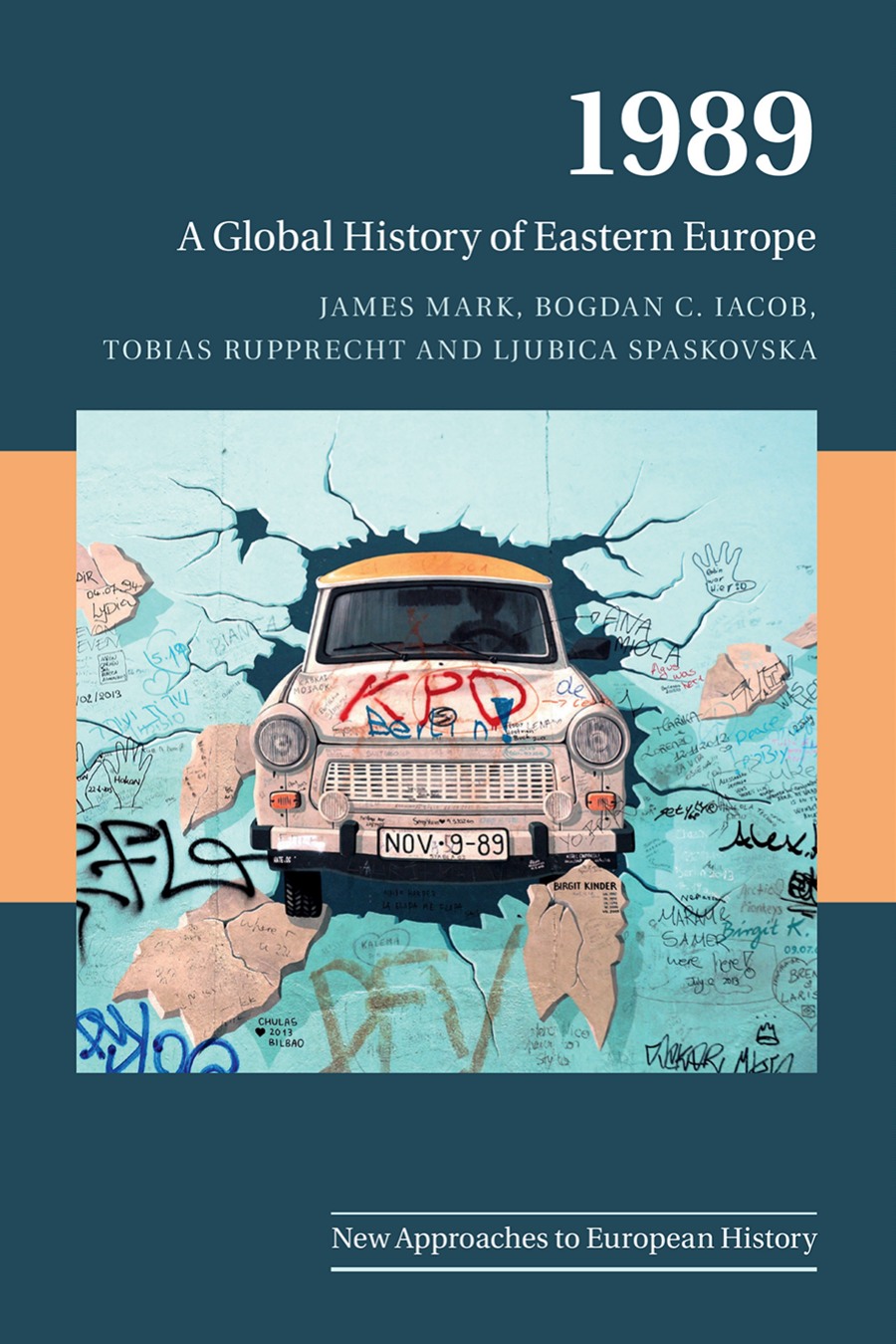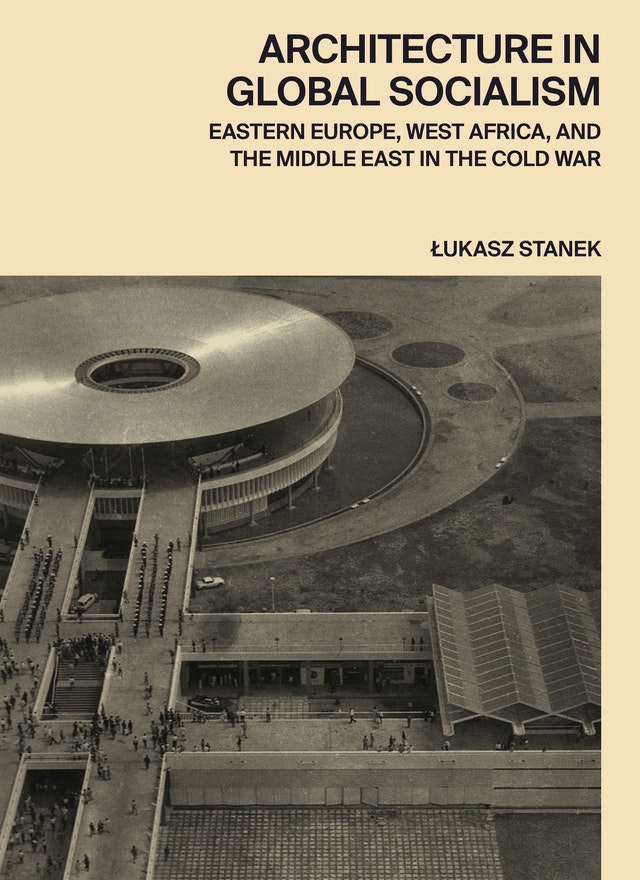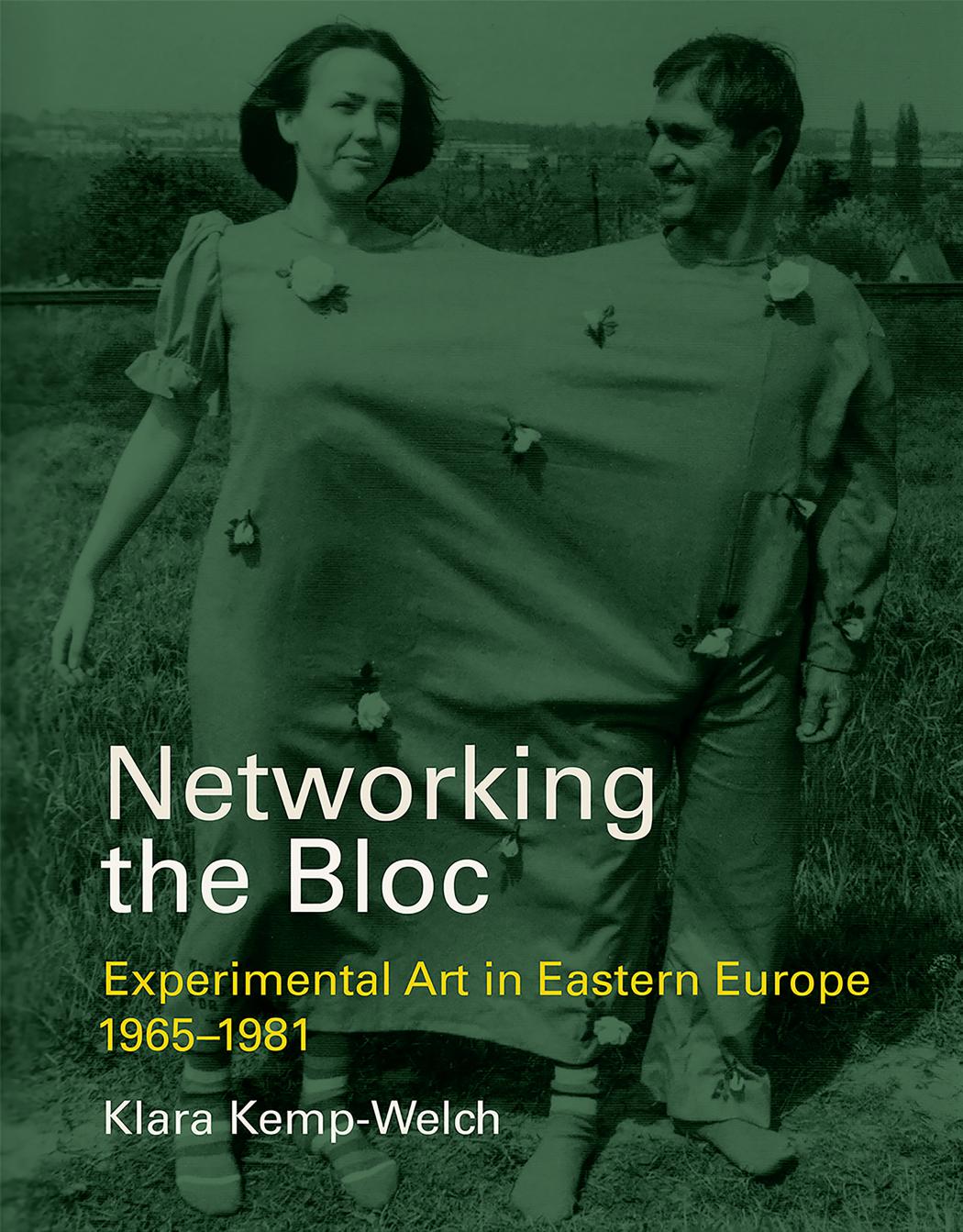James Mark, Bogdan C. Iacob, Tobias Rupprecht, Ljubica Spaskovska: 1989: A Global History of Eastern Europe (2019)
Filed under book | Tags: · 1989, authoritarianism, capitalism, central europe, communism, democracy, eastern europe, europe, european union, globalisation, history, human rights, illiberalism, internationalism, liberalism, market, migration, nationalism, neoliberalism, politics, post-communism, refugees, socialism, southeastern europe, soviet union, transition

“The collapse of the Berlin Wall has come to represent the entry of an isolated region onto the global stage. On the contrary, this study argues that communist states had in fact long been shapers of an interconnecting world, with ‘1989’ instead marking a choice by local elites about the form that globalisation should take. Published to coincide with the thirtieth anniversary of the 1989 revolutions, this work draws on material from local archives to international institutions to explore the place of Eastern Europe in the emergence, since the 1970s, of a new world order that combined neoliberal economics and liberal democracy with increasingly bordered civilisational, racial and religious identities. An original and wide-ranging history, it explores the importance of the region’s links to the West, East Asia, Africa, and Latin America in this global transformation, reclaiming the era’s other visions such as socialist democracy or authoritarian modernisation which had been lost in triumphalist histories of market liberalism.”
Publisher Cambridge University Press, Cambridge, UK, 2019
New Approaches to European History series, 59
ISBN 9781108427005, 1108427006
vii+372 pages
Reviews: Árpád von Klimo (H-Diplo, 2020), Tilmann Siebeneichner (German History, 2020), Nick Ostrum (Europe Now, 2020),
Interviews with co-author (James Mark): Ondřej Bělíček (A2larm, CZ, 2019), Ondřej Bělíček (Jacobin, 2020), Ronaldas Galinis (LRT.lt, 2020), Rūta Miškinytė (15min.lt, 2020, LT), Zoltán Ginelli (LeftEast, 2020, Part 2, Part 3).
Book summary (Eurozine, 2019).
Project website
Publisher
WorldCat
Łukasz Stanek: Architecture in Global Socialism: Eastern Europe, West Africa, and the Middle East in the Cold War (2020)
Filed under book | Tags: · architecture, cold war, eastern europe, global south, history of architecture, housing, middle east, socialism, soviet union, vernacular architecture, yugoslavia

“In the course of the Cold War, architects, planners, and construction companies from socialist Eastern Europe engaged in a vibrant collaboration with those in West Africa and the Middle East in order to bring modernization to the developing world. Architecture in Global Socialism shows how their collaboration reshaped five cities in the Global South: Accra, Lagos, Baghdad, Abu Dhabi, and Kuwait City.
Łukasz Stanek describes how local authorities and professionals in these cities drew on Soviet prefabrication systems, Hungarian and Polish planning methods, Yugoslav and Bulgarian construction materials, Romanian and East German standard designs, and manual laborers from across Eastern Europe. He explores how the socialist development path was adapted to tropical conditions in Ghana in the 1960s, and how Eastern European architectural traditions were given new life in 1970s Nigeria. He looks at how the differences between socialist foreign trade and the emerging global construction market were exploited in the Middle East in the closing decades of the Cold War. Stanek demonstrates how these and other practices of global cooperation by socialist countries—what he calls socialist worldmaking—left their enduring mark on urban landscapes in the postcolonial world.
Featuring an extensive collection of previously unpublished images, Architecture in Global Socialism draws on original archival research on four continents and a wealth of in-depth interviews. This incisive book presents a new understanding of global urbanization and its architecture through the lens of socialist internationalism, challenging long-held notions about modernization and development in the Global South.”
Publisher Princeton University Press, Princeton, NJ, 2020
ISBN 0691168709, 9780691168708
368 pages
Reviews: Gregor Harbusch (BauNetz, 2020), Alexander Adams (The Critic, 2020), Owen Hatherley (The Guardian, 2020).
Interview with author (Hilde Heynen & Sebastiaan Loosen, Architectural Histories, 2019)
PDF (55 MB, updated on 2021-4-13)
Comment (0)Klara Kemp-Welch: Networking the Bloc: Experimental Art in Eastern Europe 1965-1981 (2019)
Filed under book | Tags: · 1960s, 1970s, art history, avant-garde, central europe, cold war, collaboration, community, conceptual art, documentation, east-central europe, eastern europe, experimental art, language, mail art, neo-avant-garde, networks, performance art

“Throughout the 1970s, a network of artists emerged to bridge the East-West divide, and the no less rigid divides between the countries of the Eastern bloc. Originating with a series of creative initiatives by artists, art historians, and critics and centered in places like Budapest, Poznań, and Prague, this experimental dialogue involved Western participation but is today largely forgotten in the West. In Networking the Bloc, Klara Kemp-Welch vividly recaptures this lost chapter of art history, documenting an elaborate web of artistic connectivity that came about through a series of personal encounters, pioneering dialogues, collaborative projects, and cultural exchanges. Countering the conventional Cold War narrative of Eastern bloc isolation, Kemp-Welch shows how artistic ideas were relayed among like-minded artists across ideological boundaries and national frontiers.
Much of the work created was collaborative, and personal encounters were at its heart. Drawing on archival documents and interviews with participants, Kemp-Welch focuses on the exchanges and projects themselves rather than the personalities involved. Each of the projects she examines relied for its realization on a network of contributors. She looks first at the mobilization of the network, from 1964 to 1972, exploring five pioneering cases: a friendship between a Slovak artist and a French critic, an artistic credo, an exhibition, a conceptual proposition, and a book. She then charts a series of way stations for experimental art from the Soviet bloc between 1972 and 1976—points of distribution between studios, private homes, galleries, and certain cities. Finally, she investigates convergences—a succession of shared exhibitions and events in the second half of the 1970s in locations ranging from Prague to Milan to Moscow. Networking the Bloc, Kemp-Welch invites us to rethink the art of the late Cold War period from Eastern European perspectives.”
Publisher MIT Press, 2019
ISBN 9780262038300, 0262038307
xi+468 pages
Reviews: Cristian Nae (ARTMargins, 2019), Denisa Tomkova (H-Net, 2020), Henry Meyric Hughes (Critique d’art, 2020).
PDF (17 MB)
Comment (0)
